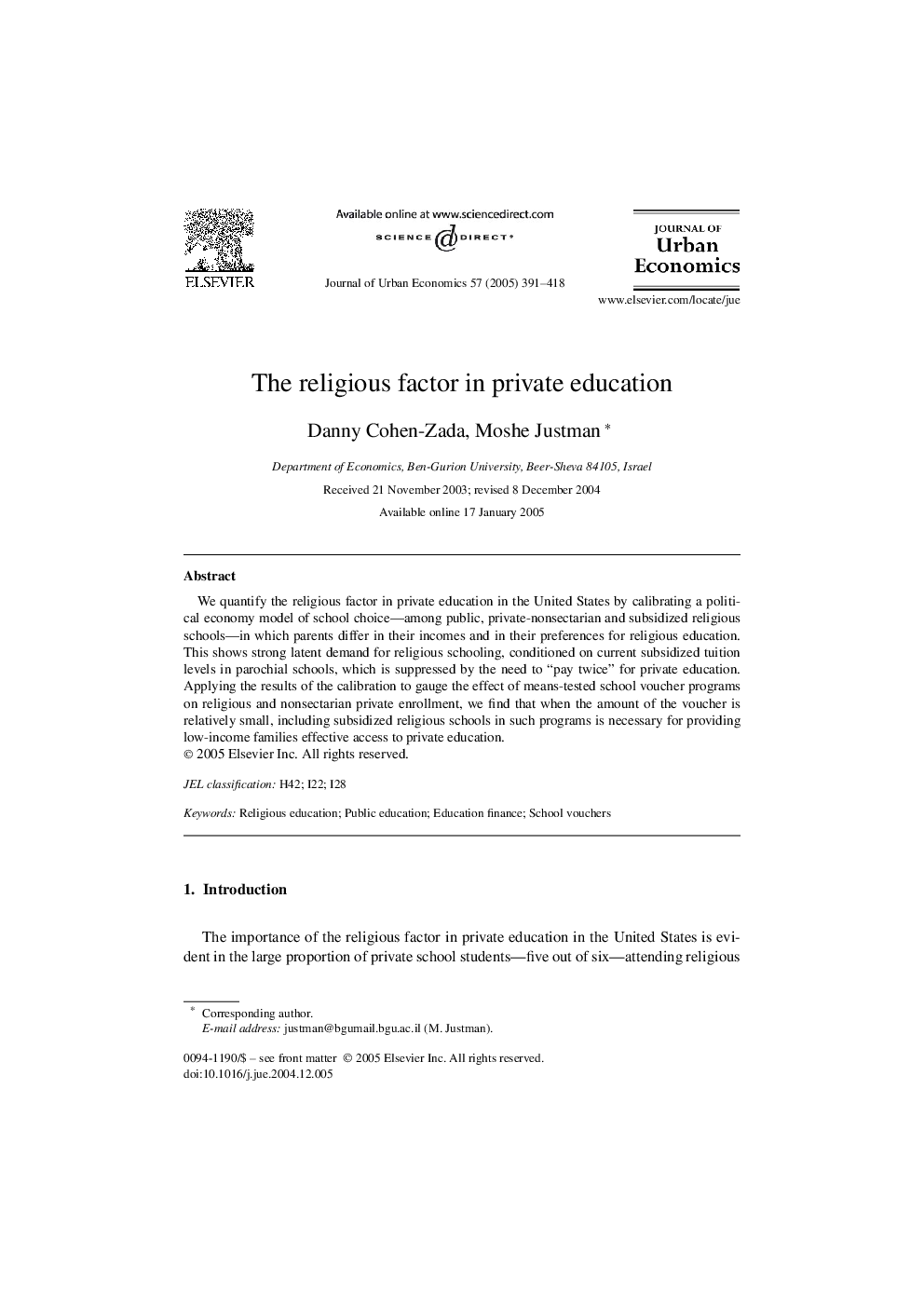| Article ID | Journal | Published Year | Pages | File Type |
|---|---|---|---|---|
| 10479765 | Journal of Urban Economics | 2005 | 28 Pages |
Abstract
We quantify the religious factor in private education in the United States by calibrating a political economy model of school choice-among public, private-nonsectarian and subsidized religious schools-in which parents differ in their incomes and in their preferences for religious education. This shows strong latent demand for religious schooling, conditioned on current subsidized tuition levels in parochial schools, which is suppressed by the need to “pay twice” for private education. Applying the results of the calibration to gauge the effect of means-tested school voucher programs on religious and nonsectarian private enrollment, we find that when the amount of the voucher is relatively small, including subsidized religious schools in such programs is necessary for providing low-income families effective access to private education.
Related Topics
Social Sciences and Humanities
Economics, Econometrics and Finance
Economics and Econometrics
Authors
Danny Cohen-Zada, Moshe Justman,
